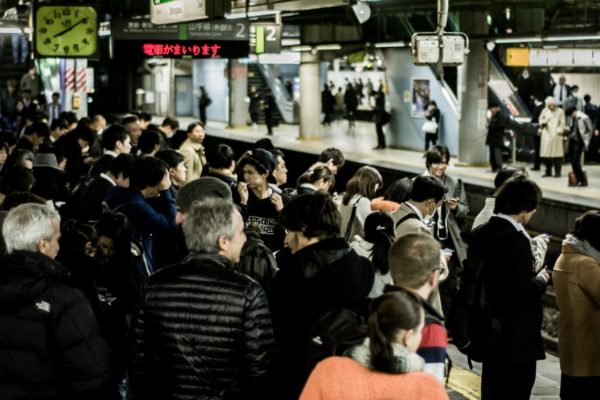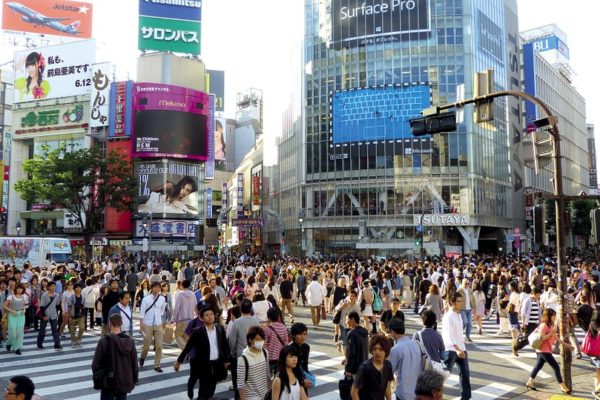You are going to Japan! You have the whole trip planned and you can’t wait to get to the Land of the Rising Sun! For many of us Japan is the dream country, a place we have wished our feet would take us ever since we were pretty young. At least this was the case with me. However, unlike me, many of the foreign visitors do not study Japanese for years. I really do want to mention, that even after studying Japanese for about three years before my first trip to Japan as a tourist I had many issues trying to communicate and connect with the people here. But do not let this put you off! It’s gonna be worth it! Many others who don’t know a single word in Japanese have made it safely to Japan and back, so you should be fine too! But just in case it might be a good idea to keep in mind a couple of useful phrases and words which might get in handy throughout your trip to Japan.
I am pretty sure that if you went to almost any other country you would be just fine with even broken English. But in Japan the knowledge of English language is quite on the low levels. This is mostly caused by the Japanese educational system. The Japanese start studying English only in middle school (junior high school), and the extent of their studies is reading some text while learning grammatical rules by heart. Not a very productive way of learning a language, if you ask me. Alas, you cannot just change the educational system of a whole country overnight and hope that the people will start speaking better English. The real problems might be lying deep down, invisible to bystanders like me.
Here’s an interesting thing though. Even if you ask a question to a random Japanese person in JAPANESE, they might end up replying to you in English, just because they can’t register the fact that a foreigner can learn their language. But let’s be honest, Japanese is indeed a hard language to learn if you compare it to any Romance and Germanic language. Thus this is not a very abnormal situation.
It is true, however, that most of the Japanese people can at least speak a little bit of English. Nonetheless, it might be better to get ready by learning a couple of phrases, instead of leaving everything to goddess of luck. In this article I will try to teach you some of the phrases that you will need during your trip. So buckle up and let’s get started!
Keep in mind, I am using romaji, the Japanese romanised version of spelling. This should be read just as they are written, with every single letter being pronounced.
Konnnichiwa – A phrase you might have heard before, and yes this does mean hello.
Sayonara – Yes, you guessed it! This one is good bye.
Arigatou (gozaimasu) – This one stands for thank you. You can use the gozaimasu if you want to seem polite, since that is the formal version of the phrase.
Doumo – Also stands for thank you, is less formal. It is also an especially good fit for using while doing your shopping or going to a restaurant.
Douitashimashit – What follows a thank you? Yes, you’ve got it, you’re welcome!
Onegai shimasu – The phrase means please, and you can use it in situations when you are asking the person to do something for you.
Hajimemashite – This is a phrase to use when introducing yourself. You could say it means I’m pleased to meet you.
Watashi wa X desu – My name is X.
X kara kimashita/Shusshin wa X desu – Both phrases have the same meaning: I am from X country.
Yoroshiku onegai shimasu – The phrase can mean Nice to meet you, but if we translate it to English literally, we will get something along the lines of Please take care of me.
Sumimasen/gomennasai – I’m sorry/Excuse me. These two do have a distinction, but you should be fine using either. What’s interesting though, you can use sumimasen to call the staff in your hotel, in a restaurant, a shop or anywhere else really, as well as as a phrase to kick-start a conversation.
Itadakimasu – You could say this is the Japanese equivalent for Bon Appetite, but not exactly. The phrase does mean Thank you for the food, but is used exclusively before eating.
Gochisousama deshita – Just like itadakimasu, this one also means Thank you for the food. However unlike the former this phrase is used only when you are finished with your food.
Oishii desu! – The food is very tasty!
Takushi noriba wa doko desu ka? – Even though I am strongly against you taking a taxi (these cost a fortune in Japan even for very short distances!), sometimes some things can’t be helped, so here’s a phrase for Where is the taxi stop?
Basutei wa doko desu ka? – Where is the bus station?
Chikaku no eki wa doko desu ka? – Where is the closest train station?
Tsugi no basu wa itsu desu ka? – When is the next bus?
Tsugi no densha wa itsu desu ka? – When is the next train?
X made douyatte ikimasu ka? – How can I go to X place?
Toire wa doko desu ka? – Where is the toilet?
Ikura desu ka? – How much does this cost?
Kore ga kaitai desu – I want to buy this.
X wa doko de kaemasu ka? – Where can I buy the X thing?
Nihongo ga wakarimasen – I don’t understand Japanese.
Eigo hanasemasu ka? – Can you speak English?
WiFi tsukaemasu ka? – Can I use the WiFi?
Hai – Yes.
Iie – No.
These ones are some of the basic phrases you might need as a tourist. But let’s not stop here and dig in a bit deeper. What happens if you suddenly and unexpectedly start feeling sick, and have no choice but to talk to somebody to ask for some immediate help? I know, speaking a foreign language you don’t really know is not going to be your priority, but it would be for the best to calm down and try to explain the situation to your guides and nurses. Here are a few simple phrases that will help you with the task.
Guai wa warui desu – I am feeling bad.
Atama/Onaka ga itai desu – My head/stomach hurts.
Heya ni modoritai desu – I want to go back to my room.
Yoko ni naritai desu – I want to lie down.
Netsu ga arimasu – I have fever.
Hakisou desu – I feel nauseous.
Mou daijoubu desu – I’m alright now.
The phrases listed above are not quite enough to hold up a conversation with a Japanese person, but of course nobody’s going to learn a whole new language for just a couple weeks long trip to the country. Mind you, a lot of foreigners in Japan cannot speak coherent Japanese even though they have lived here for many years. And then again they manage to get by with their lives just fine. Unless you end up in some very rural areas of Japan you will most likely be able to get help and guidance in English, even if not with perfect grammar or pronunciation. This list is just a precaution in case of an emergency!
In any case, I hope you enjoy your trip to Japan with or without this list!


